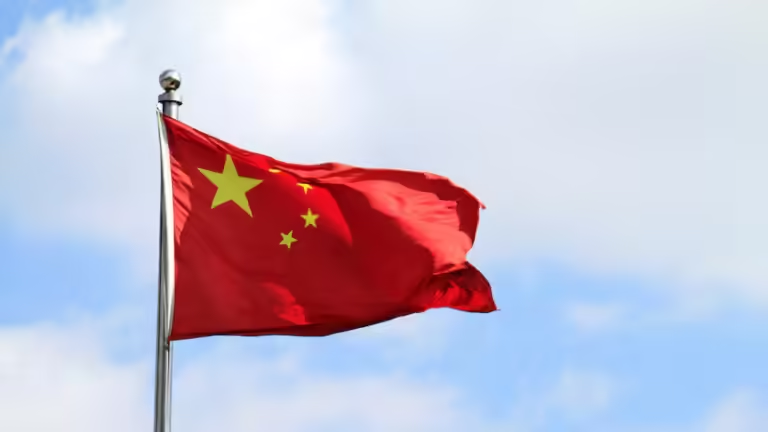UN Security Council Expresses Strong Concern Over Israeli Attacks on Peacekeepers
Summary of the News Article
On October 15, 2023, the United Nations Security Council (UNSC) expressed deep concern regarding recent Israeli attacks on peacekeeping forces in Lebanon and Syria. The statement came after reports surfaced of escalating hostilities that threaten not only the safety of peacekeepers but also regional stability. The UNSC urged all parties to adhere to international law and reaffirmed the necessity of protecting peacekeepers during their missions.
Understanding the Context: A Closer Look at the UNSC’s Concerns
1. The Role of Peacekeepers in Conflict Zones
The United Nations deploys peacekeepers globally to help maintain stability and protect civilians in conflict-affected areas. These missions are crucial in regions like the Middle East, where tensions can ignite quickly. But why are these peacekeepers often put in harm’s way? The answer lies in the complex and volatile nature of international relations in these regions.
Peacekeepers operate under challenging conditions, often with limited resources and mandates. Their role is to create a buffer between conflicting parties, provide humanitarian aid, and help rebuild war-torn societies. However, when hostilities increase, as seen with the recent Israeli attacks, peacekeepers become targets, jeopardizing their lives and the mission’s objectives.
2. Recent Escalations: What Happened?
The recent surge in violence can be traced back to increased tensions between Israel and various groups in the region. Following a series of violent exchanges, reports indicated that Israeli forces targeted positions in Lebanon and Syria, allegedly aimed at militant groups. However, these actions have inadvertently put UN peacekeepers in harm’s way, leading to the UNSC’s strong statement of concern.
The violence escalated quickly, raising fears that the conflict could spiral out of control, drawing in more actors and exacerbating an already tense situation. The UNSC’s response is not merely reactive; it reflects a broader concern about the implications of these attacks on international peace and security.
3. The Importance of UNSC Resolutions
The UNSC plays a vital role in maintaining international peace and security. Its resolutions carry significant weight, as they represent the collective stance of the international community. In this case, the UNSC’s expression of concern underscores the necessity of adhering to international law, which mandates the protection of peacekeepers and civilians alike.
When the UNSC calls on nations to uphold their commitments, it sets the stage for potential diplomatic solutions. Such resolutions can also pave the way for future discussions on conflict resolution, peace negotiations, and humanitarian aid.
4. The Implications for Regional Stability
The attacks on peacekeepers have far-reaching implications for regional stability. As tensions rise, so does the potential for conflict escalation, which could involve not just Israel and its immediate neighbors but also global powers with interests in the region.
For instance, the ongoing conflicts in Syria and Lebanon are already complicated by the presence of various international actors, each with its own agenda. Increased violence can lead to a breakdown of order, pushing more countries to take sides, ultimately complicating peace efforts.
5. The Human Cost of Conflict
Beyond the political ramifications, the human cost of these conflicts is staggering. Civilian lives are often caught in the crossfire, and the presence of peacekeepers is intended to mitigate that. However, with the rising threat to their safety, the very foundation of these missions is at risk.
For the families of peacekeepers, every deployment carries a heavy emotional burden. Knowing that their loved ones are in harm’s way can lead to anxiety and fear, which is compounded by the public’s perception of military engagements in foreign lands.
6. International Reactions: What’s Being Done?
In the wake of these developments, the international community has voiced its concerns. Various countries and organizations have reiterated the importance of protecting peacekeepers and civilians. The UNSC’s statement serves as a call to action for member states to work together to ensure that such incidents are not repeated.
Moreover, diplomatic efforts may be ramped up to address the root causes of the conflict, encouraging dialogue between the parties involved. While achieving lasting peace is a challenging endeavor, it’s essential for preventing future violence and protecting those caught in the crossfire.
7. The Call for Accountability
The UNSC’s expression of concern also raises questions about accountability. If violations of international law occur, who should be held responsible? Establishing accountability is crucial for upholding the rule of law and deterring future transgressions.
When attacks on peacekeepers happen, it’s not just a violation of a ceasefire; it undermines the entire framework of international peacekeeping efforts. Accountability measures, such as investigations into these incidents, can help restore faith in the system and promote adherence to international norms.
8. The Future of Peacekeeping Missions
As we look to the future, the landscape of peacekeeping missions may evolve in response to these challenges. The need for better protection for peacekeepers is evident, and discussions may arise around enhancing their mandates or providing additional resources.
In light of recent events, it may also be beneficial to explore new strategies for engagement in conflict zones. Innovative approaches, such as incorporating technology for better surveillance and intelligence, could enhance the safety and effectiveness of peacekeeping operations.
9. The Role of Grassroots Movements
While international bodies like the UNSC play a crucial role in addressing conflicts, grassroots movements and local organizations also contribute significantly to peacebuilding efforts. Communities directly affected by violence often have unique insights and solutions that can inform broader strategies.
Empowering local voices in peace processes can lead to more sustainable outcomes. By fostering dialogue between communities, activists can create environments conducive to reconciliation and healing, laying the groundwork for a more peaceful future.
10. Conclusion: Navigating the Path Forward
The UNSC’s strong concern for peacekeepers amid escalating violence in the region underscores the complex nature of international relations. As the world watches these developments, it’s crucial for all parties involved to prioritize dialogue, accountability, and the protection of those dedicated to maintaining peace.
The path forward may be fraught with challenges, but it also offers opportunities for growth and healing. By addressing the root causes of conflict and ensuring the safety of peacekeepers, the international community can work towards a more stable and just world.
FAQs
- What prompted the UNSC to voice concern regarding peacekeepers? The UNSC expressed concern following Israeli attacks on peacekeeping forces in Lebanon and Syria, which jeopardized their safety and regional stability.
- What is the role of peacekeepers in conflict zones? Peacekeepers aim to maintain stability, protect civilians, and support humanitarian efforts in areas affected by conflict.
- How does the UNSC influence international relations? The UNSC issues resolutions that reflect the collective stance of the international community, helping to set the agenda for diplomatic discussions and conflict resolution.
- What are the implications of attacks on peacekeepers? Attacks can escalate conflicts, threaten regional stability, and undermine the effectiveness of peacekeeping missions.
- How can grassroots movements contribute to peacebuilding? Local organizations and communities can provide valuable insights and solutions, fostering dialogue and reconciliation efforts in conflict-affected areas.



